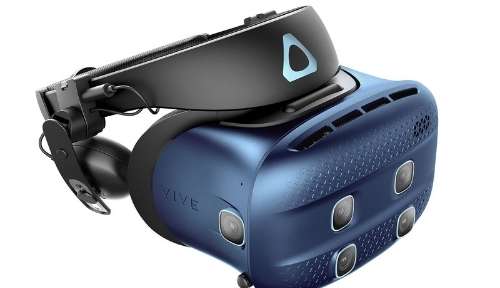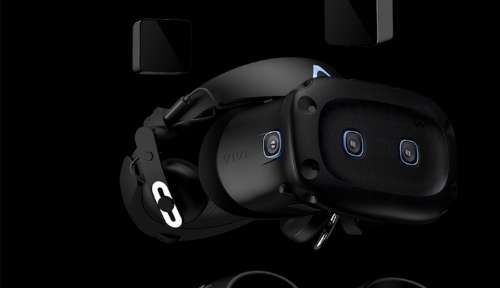If you read our blog regularly, then you’ll know I have made no secret of my dislike for Facebook’s recent decisions around Oculus products. When Facebook originally bought Oculus for a historically significant amount of money, many in the VR industry were concerned.
Facebook saw Oculus as a company that could take it into the next generation of online social interaction, which does make perfect sense. Products such as the (no defunct) Oculus Go were a perfect, low-cost way to move social media into the VR world.
The problem is that Facebook is mainly in the business of making money from user data. VR technology would also bring them new opportunities to collect our information, as well as offer them entirely new forms of data that you can’t get from flat-screen computer interaction.
What Did Facebook Do?
The problem with this strategy is that it relies on Oculus users to also be Facebook users.
Oculus have been tying various features and functions to Facebook accounts for some time now, but for the most part, if you just wanted to play some VR games, you could get by without also being a Facebook member.
That all changed with the launch of the Oculus Quest 2. This is now Oculus’ one and only VR headset, replacing both the Go and the Rift. If you buy a new Quest 2 today, you’ll find that having a Facebook account is an absolute requirement to use it.
That doesn’t mean other Oculus users have escaped Facebook’s grasp. By the end of 2023, all support for Oculus accounts will be dropped. You have to merge your Oculus account with Facebook before the cutoff date.
This has understandably left people fuming. While I’m sure many Oculus users also have Facebook accounts, that doesn’t mean that they want their VR activities or information merged with it.
For those who don’t want a Facebook account at all, this essentially forces you to set up at least a skeleton account, just in order to keep using your product.
This unhappiness has now become more than just grumbling from users; it’s sparked legal action.
Germany Vs Oculus
On the 10th of December 2020, the German Bundeskartellamt announced that they would be investigating the mandatory link between Oculus and Facebook services.
Andreas Mundt, President of the Bundeskartellamt, had this to say:
“In the future, the use of the new Oculus glasses requires the user to also have a Facebook account. Linking virtual reality products and the group’s social network in this way could constitute a prohibited abuse of dominance by Facebook. With its social network, Facebook holds a dominant position in Germany and is also already an important player in the emerging but growing VR (virtual reality) market. We intend to examine whether and to what extent this tying arrangement will affect competition in both areas of activity.”
We, of course, have no idea of what the final findings will be, but assuming that the Bundeskartellamt find that this practice is indeed anti-competitive, Facebook and Oculus may be forced to reverse the decision.
At least in Germany.
However, given Germany’s position in the European Union, I would not be surprised if an adverse finding by the German authority doesn’t lead to an EU-wide decision along similar lines.
Which, in turn, could be used as a template for similar decisions in other territories. It’s only the beginning of challenges to the decision by Facebook, but it’s also still quite a while until 2023!
The General Antitrust Filing
While the German challenge is specifically about the mandatory link with Oculus products, Facebook is also facing a massive antitrust case filed by the US Federal Trade Commission.
This filing comprehensively addresses what the FTC sees as Facebook’s long-term history of monopolistic behaviour.
While there is a lot to process in the filing, one major standout is the potential divestiture by Facebook of both Instagram and Whatsapp.
While Oculus is not mentioned by name in the overview, there’s always the possibility that it too could be forced to distance itself somewhat from Facebook.
Which does offer a glimmer of hope that we might see the Facebook requirement (and deep integration) become optional again.
Taking The Good With The Bad
There will probably be plenty of people who’ll wonder what all the fuss is about. They love Facebook, so why would anyone else have a problem with it. As I’ve said above, there are plenty of VR enthusiasts who don’t want anything to do with Facebook.
Well, why can’t they just buy a different headset? That’s not a totally unfair comment. After all, we do have plenty of choice in the tethered VR space. You could buy a Valve Index or an HTC Cosmos.
The thing is, The Quest 2 is the most affordable, most versatile headset on the market. It enjoys the best developer support and excellent app curation.
It’s an amazing product that occupies the same sort of mainstream sweet spot as the latest Xbox or Playstation.
Now imagine that Sony required that you only use a Sony TV with your PlayStation 5 or demanded that only people who also open a Crackle account would be allowed to use the console.
This is more egregious than Microsoft bundling their own web browser with Windows, which caused plenty of antitrust complaints back in the day.
In that case, you could at least argue that everyone needs a web browser and that Microsoft wasn’t stopping users from downloading any other browser they like.
The fight about the Facebook Oculus requirement is only beginning now, but as always I hope we get the most pro-consumer result possible.







